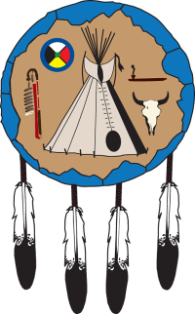The Ponca Tribe of Nebraska wins again, with the National Indian Gaming Commission deciding to clear the Prairie Flower Casino.
The National Indian Gaming Commission ruled in the tribe’s favor for the third time.
The latest decision further cements the tribe’s right to conduct gaming on its sovereign land in Carter Lake, Iowa, and disposes of the last issue raised by plaintiffs in their case in District Court, according to tribe representatives.
The NIGC decision is a blow for the plaintiffs, which include the states of Iowa and Nebraska and the city of Council Bluffs, in their efforts to weaken the tribe’s right to offer gaming and entertainment in Carter Lake.
“The National Indian Gaming Commission reaffirmed what we have known to be true for over a decade: The Ponca Tribe of Nebraska has the right to operate Prairie Flower Casino on their tribal land in Carter Lake, Iowa,” said James Meggesto, a partner at Holland & Knight law firm who represents the Tribe. “The decision effectively ends the legal battle in District Court. The Ponca Tribe of Nebraska and Prairie Flower Casino are appreciative of the Court’s and Commission’s review of the facts and are eager to continue their mission of offering quality entertainment for the region while giving back to the community where they work and reside.”
The latest NIGC decision comes after a March 26 ruling by District Court Judge Stephanie M. Rose, which rejected almost all the challenges raised by the plaintiffs.
In that decision:
- The court ruled that the alleged 2002 “Agreement” does not bar the Ponca Tribe of Nebraska from providing gaming on its sovereign land in Carter Lake because:
it was not properly authorized by the Tribe, and
the State of Iowa did not rely on the agreement to its detriment.
- The court held that contrary to the plaintiff’s arguments, the Tribe’s federal Restoration Act permits the Tribe to have restored land in Pottawatomie County.
- The court upheld the NIGC’s analysis of the tribe’s gaming application by using the test in effect when the application was made rather than regulations enacted after the NIGC initially approved the application in 2007.
Judge Rose returned the matter to the NIGC to consider one issue that it had not addressed. The NIGC was to clarify whether the alleged 2002 Agreement affects the conclusion that the Carter Lake parcel constitutes “restored lands” that is eligible for gaming.
According to tribe representatives, Wednesday’s ruling from the NIGC confirms the tribe’s position that its land in Carter Lake qualifies as restored lands and therefore it is eligible to offer gaming there.


